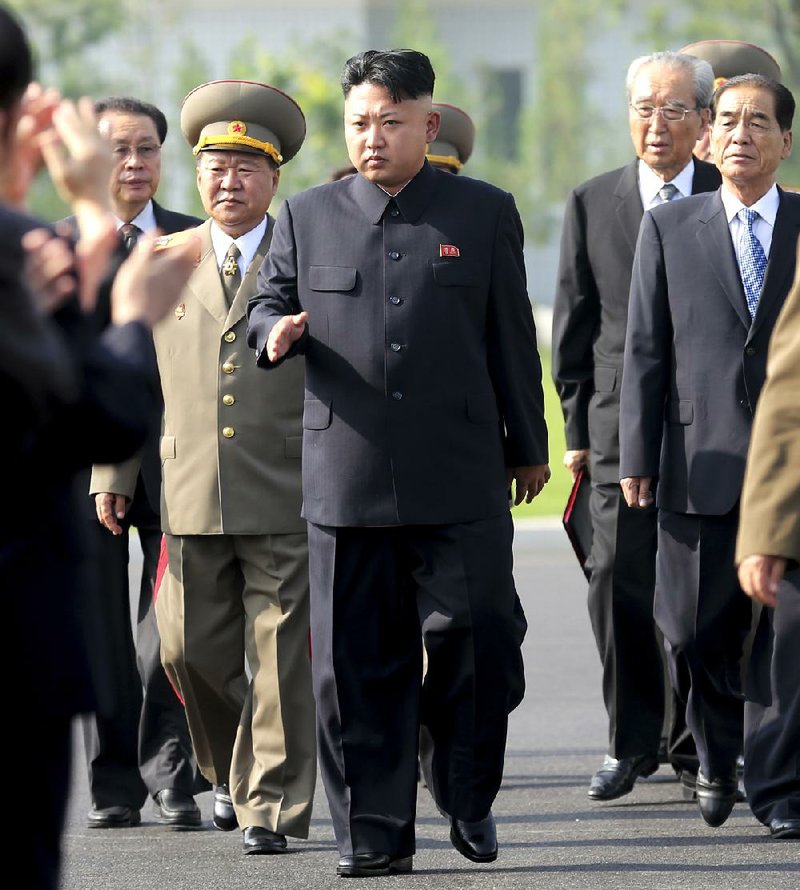SEOUL, South Korea -- South Korea's spy agency said Tuesday that it has solved the mystery of North Korean leader Kim Jong Un's six-week public absence, which led to speculation around the world.
The National Intelligence Service told legislators that a foreign doctor operated on Kim in September or October to remove a cyst from his right ankle, according to Park Byeong-seok, an aide for opposition lawmaker Shin Kyung-min. The aide said the spy agency also told lawmakers in a private briefing that the cyst could recur because of Kim's obesity, smoking and heavy public schedule.
After last being seen in state media on Sept. 3, Kim reappeared Oct. 14 hobbling with a cane but smiling and looking thinner. The speculation during his absence was particularly intense because of the Kim family's importance to impoverished, nuclear-armed North Korea. The family has ruled the country since its founding in 1948.
Lim Dae-seong, an aide to ruling-party lawmaker Lee Cheol-woo, who also attended the briefing, said the spy agency identified Kim's condition as tarsal tunnel syndrome.
The syndrome, which is often painful, is caused by the compression of a nerve, sometimes because of a cyst. Surgery is generally seen as a last resort after other treatments are unsuccessful.
No weight should be put on the foot for 10 days after an operation, and improvement may take two to three months, according to the website of the neurosurgery department at NYU Langone Medical Center, an academic medical center in New York affiliated with New York University.
It wasn't immediately clear how the information about Kim's condition was obtained by the spy agency, which has a spotty track record of analyzing developments in North Korea.
The agency also told the lawmakers that North Korea has expanded five of its political prisoner camps, including the Yodok camp, which was relocated to the northwest city of Kilchu, Lim said. The spy agency believes the camps hold about 100,000 prisoners, he said.
Lim said the agency also believes that North Korea recently used a firing squad to execute several people who had been close to Kim Jong Un's uncle, Jang Song Thaek, who was considered the country's No. 2 power before his sudden removal from the government and execution in December 2013.
South Korea's spy agency correctly said that Jang had likely been dismissed from his posts before North Korea officially announced his arrest.
However, the agency received heavy criticism when its director acknowledged that it had ignored intelligence indicating North Korea's impending shelling of a South Korean island in 2010.
It also came under fire because of reports that it learned of the 2011 death of then leader Kim Jong Il, Kim Jong Un's father, when North Korea's state media announced it to the world more than two days after it occurred.
Information for this article was contributed by Hyung-jin Kim of The Associated Press.
A Section on 10/29/2014

